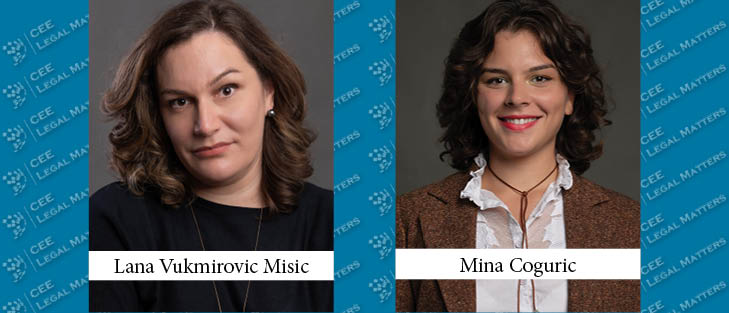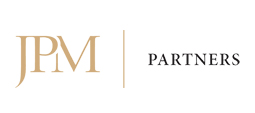The new Waste Management Law of Montenegro (“the Law”), which came into force on April 12, 2024, represents a step further towards harmonizing Montenegrin legislation with the acquis communautaire, namely key European Union (“EU”) directives in the area of waste management.
The Law introduces the concept of Extended Producer Responsibility (EPR), further emphasizing the role of producers in the waste phase of the product life cycle. Additionally, in preparation for the entry into force of provisions restricting the use of plastic bags and single-use plastic products, which will take effect on October 20, 2024, it is particularly important for producers and retailers to timely assess their new obligations and adjust their operations to meet legal requirements and contribute to environmental protection.
The introduction of the EPR concept is the result of harmonization of Montenegrin legislation with Directive 2008/98/EC on waste and repealing certain directives, under which Extended Producer Responsibility entails the introduction of a set of measures by the Member State, i.e., Montenegro as an EU candidate country, to ensure that producers bear financial responsibility, or financial and organizational responsibility, for managing the waste phase of the product's life cycle. Some of the obligations imposed on producers include the obligation to keep records of produced or imported products, as well as the equipment in which these products are incorporated, the obligation for producers to accept returned products or waste generated after their use without charge, the obligation to manage waste and bear the financial responsibility for these activities, and the obligation to fulfill responsibilities under the EPR program, particularly concerning the payment of contributions and the collection of data on products placed on the market.
The term "producer" is broadly defined, as Article 14, paragraph 1 of the Law provides that a producer is considered to be any legal entity or entrepreneur engaged in the production, improvement, processing, handling, sale, or importation of products (new, used, repaired, or reconditioned).
Furthermore, the amendments, which were made to align the Law with Directive 94/62/EC on packaging and packaging waste, will significantly impact daily life in relation to the ban on the use of plastic bags. The ban on the use of plastic bags includes the obligation for retailers to phase out plastic carrier bags with wall thicknesses from 15 to 50 microns. In the event that retailers use plastic carrier bags with a thickness greater than 50 microns at the point of sale, they are required to pay a fee, the amount of which is determined by the Regulation on the fee payable by the seller for light plastic carrier bags with a wall thickness of more than 50 microns, adopted by the Government of Montenegro on October 10, 2024. According to this Regulation, retailers will be obliged to pay a fee of EUR 0.03 per bag, and the amount will be calculated based on the monthly report on the number of bags sold, starting from the day the said Regulation comes into force[1]. A legal entity that does not comply with these provisions may be subject to a fine ranging from EUR 1.000,00 to EUR 20.000,00 in a misdemeanor proceeding.
Additionally, the new Law prohibits the trade of oxo-degradable plastic[2] products and certain single-use plastic products, as specifically listed in the Law, which includes plastic cotton buds, cutlery, plates, and straws. EU Directive 2019/904 on the reduction of the impact of certain plastic products on the environment, which introduced the ban on single-use plastics, provides examples of certain products that are or are not considered single-use plastic products within the meaning of the Directive. Accordingly, single-use plastic products do not include containers for dry food or food sold cold that requires further preparation, whereas, on the other hand, containers for fast food or boxes for meals, sandwiches, tortillas, and salads with hot or cold food are considered single-use plastic products. The primary goal of the solutions envisaged by the said Directive is to reduce the amount of waste generated by promoting a circular approach that prioritizes sustainable and non-toxic reusable products and reuse systems over single-use products.
The new Waste Management Law introduces numerous new obligations that, on the one hand, will compel producers and retailers to promptly adapt their products and packaging to new standards and develop strategies for financing recycling processes. On the other hand, the Law is expected to stimulate a reduction in the negative impacts of pollution and introduce environmentally friendly habits into the daily life of the community. It is important to follow the deadlines and actively engage in the development of sustainable waste management solutions, given that the adoption of the new Law in the area of waste management represents an initial step towards further infrastructure development and improved implementation, with the aim of meeting all the objectives in this area by 2030.
[1] Article 3 of the Regulation on the fee payable by the seller for light plastic carrier bags with a wall thickness of more than 50 microns stipulates that the regulation enters into force on the day following its publication in the “Official Gazette of Montenegro”.
[2] Plastic containing additives that accelerate its degradation under the influence of oxygen and UV light and is often used in the production of plastic bags, packaging, and other short-term use plastic products.
By Lana Vukmirovic Misic, Senior Partner, and Mina Coguric, Associate, JPM & Partners


